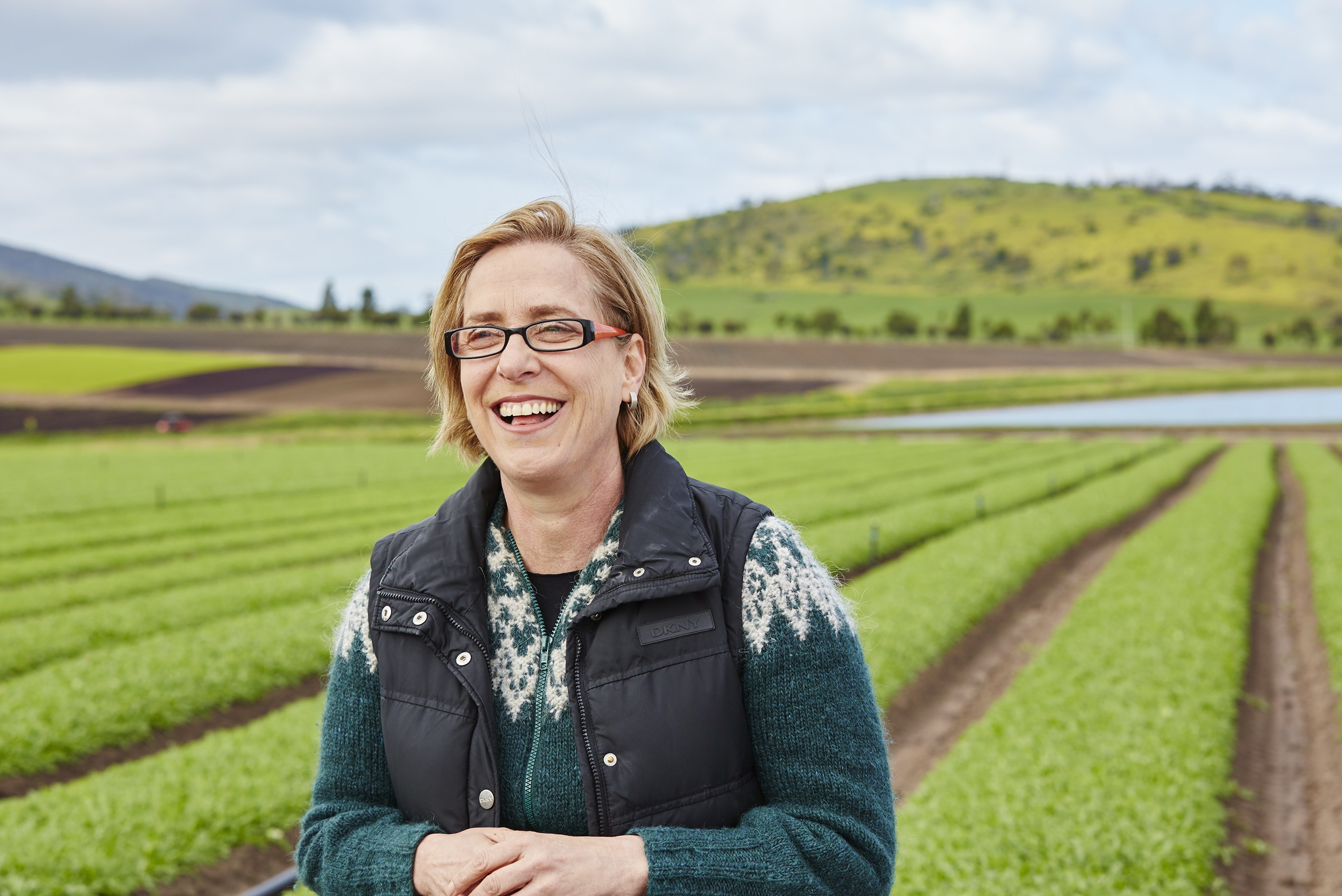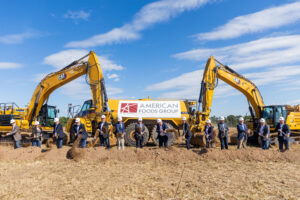What do women in AgriFood Tech wish for in 2019? We asked members of the Women in AgriFood Tech Slack group — request to join here — and broadly they’re hoping for more collaboration, better tech solutions built with farmers, increased understanding of food’s role in climate change mitigation, more realism in funding, and greater diversity.
“The most fundamental thing is that we need better technology that solves real-world problems and is accessible to growers,” said Ros Harvey, CEO of IoT and AI startup The Yield, an AgFunder portfolio company based in Australia. “The technology sector can sometimes let down the agriculture sector; often when technology is created for growers directly from technology providers and the research community, it simply isn’t user-friendly. Growers are busy people with a unique combination of pressures, so any new technology also needs to be fast, easy, and user-friendly. Most of all, it needs to benefit growers. This is the only way our technology, and any new agtech developments, can be sustainable and successful.”
Sarah Nolet, founder of consultancy AgThentic and partner of Australian firm Tenacious Ventures, offered similar hopes for 2019: “Agtech cannot succeed if it operates without deep connectivity to and collaboration with ag. We’re making progress here [in Australia] and I’m looking forward to building momentum in 2019.” (Nolet addresses this issue in her podcast Agtech…So What?.)
Connie Bowen from The Yield Lab was pleased to see the continued growth in the number of investors paying attention to agrifood tech but cautions that the evolving industry must ensure diversity if it’s to effect change.
“2018 has been a particularly interesting year for VC, with an emergence of different types of funds and investing in different types of people. It will be interesting to see how agtech specific investors find their place in the evolving agtech ecosystem. I’m concerned right now that we’re not focused on including underrepresented founders and partners in ag, and that once again, ag will end up being behind the traditional “tech” industry in a facet of business that has already been demonstrated to improve multiple factors of operating. I hope that this is an issue that continues to get attention – I for one plan to continue to give it attention!”
For Poornima Parameswaran, co-founder of Trace Genomics, an AgFunder portfolio company focused on the soil microbiome, collaboration is a key concern and hope for the future.
“I wish for more dialogue and execution on what the industry can achieve with new technology starting today – not next season, not 10 years from now, not in 2050 – now. What can we achieve together starting today and now, and set the foundation for industry-changing partnerships on a 3-year, 5-year, 10-year horizon and beyond?”
The Yield’s Harvey also wants to see more collaboration, particularly between different disciplines and industries. “The rise of agtech and the move toward digital technology is starting to see regulators, researchers, industry, and entrepreneurs work together toward developing real-world solutions, but more work needs to be done to collaborate more effectively. The trick is often on the commercial side in taking the technology from R&D to commercial viability. It is not called the valley of death for nothing.”
Sara Eckhouse from multistakeholder investment platform FoodShot Global, who echoed comments about collaboration, is particularly focused on the need for agriculture’s role in climate change mitigation to be understood and innovated for. With the deadline approaching for FoodShot’s first challenge — Innovating for Soil 3.0 — she hopes that innovators will particularly work on improving soil health.
“I hope businesses and investors recognize the value of improving soil health and adopting climate-smart agricultural practices as ways to de-risk their supply chains over the medium to long-term. The short-term investments needed for such improvements are minimal compared to the long-term costs that climate volatility and ongoing soil degradation will impose via yield losses, desertification, loss of biodiversity, etc,” she said. “I’m excited that there is increasingly widespread recognition that the global food system is a major lever when it comes to combating (and adapting to) climate change, improving health, and reducing poverty. I hope this growing acknowledgment translates into meaningful innovation, investment, and collective action across the supply chain.”
Janette Barnard from DecisionNext is hopeful that innovation will increase in the livestock and meat segments “which have largely missed the benefits of the agtech boom.” Hopefully, the recent acquisition of livestock monitoring tech Antelliq by German pharmaceutical company Merck will encourage more entrepreneurs and investors to make bets in the space.
Melissa Brandao, CEO of HerdDogg, certainly received the news well! “Your story on the biggest ever AgTech deal Antelliq/Merck definitely made our holiday season at HerdDogg.”
Barnard also hopes for “momentum in commodity markets and the technology that helps decision makers navigate volatility, more innovation across the ag industry that creates such outsized ROI’s that it cannot be ignored, and for the resistant old school mentality to abandon negativity and “we’ve always done it this way” in favor of openness, agility, and a dynamic mentality to compete in an Amazon era.”
Abi Ramanan, CEO of ImpactVision, the hyperspectral imaging startup for food processors and an AgFunder portfolio company, wants more realism in some of the funding taking place in the industry.
“I would say that over-investment in some startups — i.e. Softbank in Plenty or, to an extent, investments in Apeel Sciences, Impossible Foods etc, — distorts the market for companies who have competitive solutions, which can seem unfair, particularly when a lot of those well-funded technologies are yet unproven in the market.”
Emma Fletcher, MD of SmithsonHill in Cambridge, UK, is working on a proposed AgriTech facility would provide a physical base for the UK’s Agritech cluster. SmithsonHill is a joint venture between Russell Smith Farms and Hill Commercial Investments. Emma would like to see more collaborative working to apply new technologies from across sectors in Agriculture.
“There are so many new technologies emerging, we are seeing really exciting new start-ups that work across sectors – such as biotech applied in livestock farming. I would like to see more of this in 2019 – whilst the AgriFood industry continues to work hard to keep closer to consumers and trends.”
Are you a woman working in the food tech and agtech industry and want to connect with your peers? Get in touch by emailing [email protected] or request to join the Slack group here. And please send any of your industry wishes for 2019 to [email protected].
Image: Ros Harvey from The Yield.





